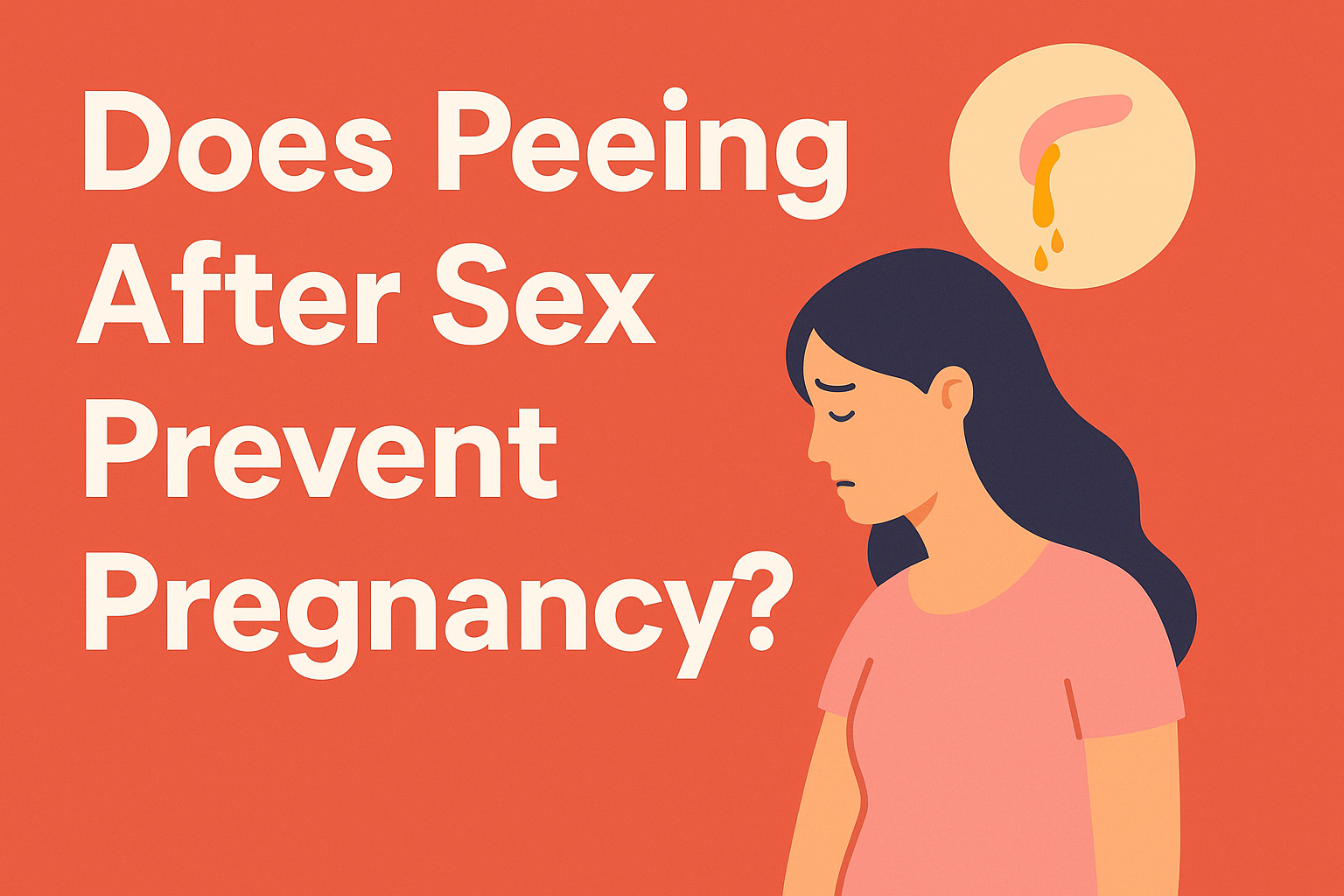Introduction
After sex, many people wonder if going to the bathroom can help prevent pregnancy. It seems logical—flush things out, and you’re safe, right? But the truth is more complicated. Peeing after sex has benefits, but preventing pregnancy isn’t one of them. In this article, we’ll break down the myths, explain the real science, and give you practical advice on what actually works if you want to avoid pregnancy.
Why Do People Think Peeing After Sex Prevents Pregnancy?
This myth has been around for years, and it’s easy to see why. After sex, especially without protection, the thought of urinating to “wash out” sperm may feel like a quick fix. The idea comes from believing urine can somehow flush sperm out of the vagina the same way it flushes waste out of the bladder.
But here’s the fact: your urinary tract and your vagina are two completely different systems. Urine comes out of your urethra, while sperm enters your vagina. Peeing clears bacteria from your bladder, not sperm from your vagina.
Does Peeing After Sex Prevent Pregnancy? The Short Answer
No. Peeing after sex does not prevent pregnancy.
Here’s why:
- Once sperm enters the vagina, it can start swimming toward the cervix almost immediately.
- Sperm are fast—some can reach the uterus within minutes.
- Urine has no contact with the sperm inside the vagina, so peeing won’t wash them out.
So, while it may feel like a quick “clean-up,” peeing after sex simply doesn’t work as birth control.
What Peeing After Sex Actually Does
Even though peeing doesn’t prevent pregnancy, it’s still recommended after sex—especially for women. Here’s why:
- Prevents UTIs (urinary tract infections): During sex, bacteria can move into the urethra. Peeing helps flush these bacteria out.
- Promotes hygiene: Urinating after sex helps you feel cleaner and reduces discomfort.
- Supports bladder health: Regularly emptying the bladder prevents bacterial build-up.
👉 Bottom line: Peeing after sex is healthy, but don’t confuse it with contraception.
Common Myths About Peeing and Pregnancy
Myth 1: Peeing Flushes Out Sperm
Fact: Sperm do not come out of the urethra. They remain inside the vagina, and peeing won’t touch them.
Myth 2: Peeing Reduces Pregnancy Chances
Fact: Whether you pee right after or hours later, it doesn’t affect sperm that have already entered the cervix.
Myth 3: Peeing + Showering = Safe
Fact: Cleaning the outside of the body doesn’t stop sperm already inside. Even douching is ineffective and can harm vaginal health.
What Actually Works to Prevent Pregnancy
If you’re looking for real protection, here are the proven methods:
1. Condoms
One of the most effective ways to prevent pregnancy and protect against STIs.
2. Birth Control Pills or Hormonal Methods
Pills, patches, shots, implants, and IUDs are highly reliable when used correctly.
3. Emergency Contraception
If you had unprotected sex, options like the morning-after pill (Plan B or Ella) can help prevent pregnancy if taken within 3–5 days.
4. Fertility Awareness and Tracking
Learning your cycle and fertile days can help, but it requires careful monitoring and is less reliable on its own.
5. Withdrawal Method (Pulling Out)
Not very reliable, since sperm can be released before full ejaculation.
👉 If pregnancy prevention is your goal, always use a proven contraceptive method. Peeing is not one of them.
What About Reducing Risks After Unprotected Sex?
If you had unprotected sex and are worried about pregnancy, peeing won’t help—but here’s what you can do:
- Take emergency contraception ASAP.
- Get tested for STIs if you’re at risk.
- Talk to your doctor about long-term birth control options that suit your lifestyle.
Emotional Side of the Myth
Many women worry right after sex, especially if contraception wasn’t used or failed. Peeing may feel like taking quick action, which explains why the myth keeps spreading. But knowing the truth can reduce anxiety and help you focus on steps that actually work.
Also, remember that sexual health isn’t just about preventing pregnancy—it’s also about feeling safe, cared for, and confident in your choices.
Actionable Advice
- Always use protection if you don’t want to risk pregnancy.
- Pee after sex to protect against UTIs, not pregnancy.
- Educate your partner about the difference between urinary health and pregnancy prevention.
- Keep emergency contraception handy if you’re sexually active and not on regular birth control.
Conclusion
So, does peeing after sex prevent pregnancy? No—it doesn’t. While peeing is excellent for preventing urinary tract infections and keeping you comfortable, it has zero effect on sperm inside the vagina. If you want to avoid pregnancy, rely on real birth control methods like condoms, pills, or IUDs.
At the end of the day, knowing the truth clears up confusion and gives you control over your body and choices. Take care of your health, protect yourself, and don’t let myths guide your decisions.

Leave a Reply